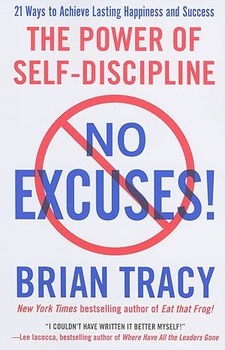“The ability to discipline yourself to delay gratification in the short term in order to enjoy greater rewards in the long term is the indispensable prerequisite for success.”
Brian Tracy
Beyond the Quote (339/365)
The ability to delay gratification—to resist an immediate reward in preference for a greater future reward—has been proven to be an accurate predictor of a person’s long-term success. In other words, it’s almost always a good idea. After all, a greater reward sounds better than a smaller reward, even if it is a little later, eh? But, at the same point, should gratification always be delayed? Wouldn’t pushing what you desire out into the future cause you a certain level of discontent/ unhappiness, too? How does that discontent/ unhappiness in the short-term measure up?
Read More »Brian Tracy Quote on Delaying Gratification and How It’s An Indispensable Prerequisite for Success 



